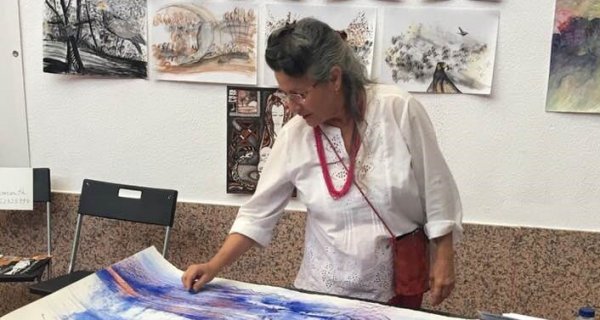"It's not new to me to be in quarantine. Creation needs a space inside us, we need to be alone. I'm used to being alone," he told the Lusa agency.
Despite this familiarity with loneliness, in Dilia's house, there's no shortage of people, since this house in Setúbal is also an atelier where she and her husband, a retired university professor of Indian origin, give lessons and explanations.
Before this way of living, Dilia taught in public schools, but gave up because she did not adjust "to the social system that was, and is, installed".
The fact that the couple worked at home forced them to "work a strict timetable" and so, in the first week without pupils, they felt "like a butterfly".
"I didn't know what to do, I was without students, but always waiting for them", he said.
In the second week of confinement, the artist discovered she had a house.
"I realized I could walk barefoot or in a robe and I didn't have to look like a teacher from 9.30am", she said.
But a week later, the couple was confronted with a discovery: "We found out that the students are our family".
"It gave a pain inside me, more to me than to my husband, who is more rational. I'm very emotional. I like my students so much, to help them get good grades, to help those who have more problems at school. And when I talked to them, they said they were missing me too".
Now Dilia says she takes it one day at a time and has no big news.
"I've always lived on the tightrope and we've always got used to living with only the essentials. This is our logic of life: to depend on the minimum".
A training that the artist learned in Angola, where the war helped her to relativise things.
At 63 and three decades old in Portugal, she often thinks of those who have nothing, which is "a training to respect all the people who live on the planet".
And she believes that the pandemic she's experiencing will help to focus people on what really matters.
"This is the time to be more together and to realise that we are really brothers", she said.







